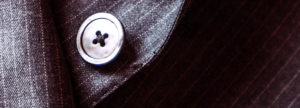
14 Apr The Richness of Rituals
This article by Janis Palma was originally published on Aug 22, 2011. Janis gives us some insights into her rituals and encourages us to look into our own behavior. Enjoy!
– by Janis Palma © 2011
I have just realized that with my rituals I am strengthening my own sense of identity...
As I was putting on my make-up this morning getting ready for work, the thought crossed my mind in a flash: “I am putting on my war paint.” I realized it was a ritual, perhaps not too dissimilar from the rituals of our indigenous ancestors as they prepared to go to the battlefield. Indeed, there is a certain ceremony involved in painting my face to go to war… I mean, work.
Individual and Collective Rituals
Rituals can be shared by a group of people, either because they all believe in the power of the common actions, or because they have rules that involve penalties if the rituals are not followed. For example, when we go to court, we all stand when the judge walks into the courtroom, lawyers must ask permission to cross the well before they can get close to a witness who is testifying, and people in the audience can listen but not speak. These rituals impose a certain order that is reassuring; in contrast with the uncertainties we all face in a world in which “modern society” tends to shun formalities and tradition.
We can also create our own rituals, like making our morning coffee a certain way, or indulging in a warm bubble-filled bathtub with a glass of chilled wine and sweet aromatic candles after a crazy-busy day at work. Of course, while we are at work we can have all sorts of rituals in addition to the formalities of the court, like how we set up our equipment, or what kinds of shoes or tie we wear to a deposition versus a trial. We infuse symbolic meaning into our rituals that in turn “enhances [our] feelings of safety, confidence, and well-being.” [http://www.marksdailyapple.com/the-power-of-ritual/#ixzz3ANaCzrBH]
Rituals are good for you
As I was looking for more information about rituals, I learned that some psychologists have found through their research “that rituals can have a causal impact on people’s thoughts, feelings, and behaviors.” [http://www.scientificamerican.com/article/why-rituals-work/] By going through my morning face-painting and power-dressing rituals, I aim to look and feel “ferocious”. When judges and lawyers see me walk into a courtroom, I want them to see a very strong, very self-assured interpreter. I have just realized that with my rituals I am strengthening my own sense of identity and connecting with the power within me to be exactly who I want to be.
In that same article, (Why Rituals Work, Scientific American, May 14, 2013) the authors, Francesca Gino and Michael I. Norton, explain that “[w]hile some rituals are unlikely to be effective – knocking on wood will not bring rain – many everyday rituals make a lot of sense and are surprisingly effective.” For some interpreters, the ritual could be the repetition out loud of new words and phrases until they are permanently etched in their long-term memory. For others, it could be taking notes even when they are not interpreting. Whatever ritual we perform, even if it’s a personal ritual, “[we are] still participating in something that extends beyond our own experience.” (Mark Sisson, marksdailyapple.com) And for interpreters, particularly freelance interpreters who often work in isolation from their peers, this connection is essential to maintain a healthy balance in life.
My belief system
The Britannica Online Encyclopedia Academic Edition tells us that “All rituals are dependent upon some belief system for their complete meaning.” [http://www.britannica.com/EBchecked/topic/504688/ritual] As a judiciary interpreter, I participate in many rituals that include other court personnel (like standing, sitting, addressing the judge as Your Honor, asking to be excused before leaving a courtroom, and so forth), a few that involve fellow interpreters only (like the rituals of team interpreting, sharing glossaries or words lists, etc.), and even fewer that are very personal and involve only me (e.g., the “war paint”, the business suit and the high heels… well, medium height, since I am way past that stage in life where you can actually walk in the 4-inch heels!) I do believe in the “magic” of projecting professionalism in the way I look as well as the way I perform. I firmly believe that walking into a courtroom (or conference room for a deposition) with a healthy load of self-assurance will make the people around me trust that I know what I’m doing, and that I am doing it correctly. It also keeps the bad juju away!
Janis Palma has been a federally certified English<>Spanish judiciary interpreter since 1981. She worked as an independent contractor for over 20 years in different states. Her experience includes conference work in the private sector and seminar interpreting for the U.S. State Department. She joined the U.S. District Courts in Puerto Rico as a full-time staff interpreter in April 2002. She has been a consultant for various higher education institutions, professional associations, and government agencies on judiciary interpreting and translating issues. She is a past president of the National Association of Judiciary Interpreters and Translators.
Contact: janis.palma@gmail.com



Well said! Thanks for sharing this article, rituals are good habits to reassure individuals in their profession field. Also, appearance and confidence reflects trust among others.
Hi!
Enjoyed your thoughts very much and was precisely thinking of you last night (I’m in Miami right now) when I happened to catch a WONDERFUL interview with Justice Sotomayor on C.SPAN…. amazing coindidence, you have a lot in common, ALL GOOD!